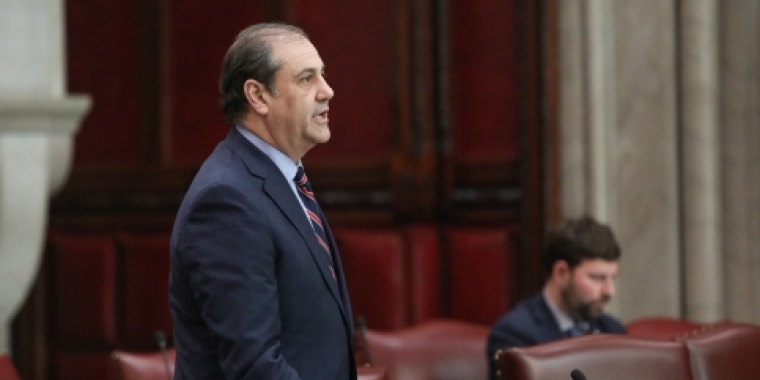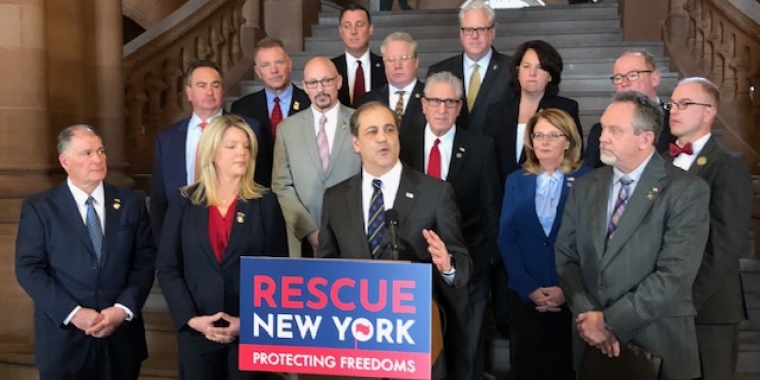
Senator Lanza Fights For Tax Relief In The 2008-09 State Budget
Fighting proposed tax increases and working for more tax relief is one of Senator Lanza’s top priorities. The Senate Majority’s budget provides meaningful property tax relief, contains no new or increased taxes or fees, and advances approximately $300 million in across the board spending cuts to reduce waste and increase government efficiency.
"New Yorkers are among the highest taxed people in the entire nation," said Senator Lanza. "While the Executive and the State Assembly continue to propose schemes that take more of your hard-earned money, the Senate Majority is standing up and fighting for the hardworking, overburdened taxpayers of this state. The Senate’s budget plan provides the critically important tax relief necessary to strengthen our economy, create and retain good jobs and keep people working and living in New York."
The Senate’s spending plan restores $319 million in scheduled STAR school property tax rebate checks that was removed from the Executive Budget. This includes restoration of $40 million for the New York City Personal Income Tax credit enhancement.
The Senate Budget rejects the $1.7 billion in tax and fee increases advanced in the Executive Budget, including a 300 percent tax increase on motor vehicle registration fees, higher gas taxes that increase prices at the pump, the "crack tax" on drug dealers, and increased taxes on hospitals, nursing homes and health insurance that compromise critical health care services.
The proposal also rejects the Assembly Democrats’ efforts to increase the State’s Personal Income Tax (PIT) by $1.5 billion, as well as the Democrat-allied Working Families Party’s call for rolling back $16 billion in tax cuts which would lead to an unprecedented assault on taxpayers to pay for additional ruinous State spending.
While the Senate Budget rejects the taxes and fees proposed in the Executive Budget, the Senate substitutes other revenue sources to ensure a balanced budget, and advances approximately $300 million in across the board spending cuts and $600 million in other cuts.
The proposed Senate budget spends millions less than the budgets proposed by the Executive and by the Assembly.
Additionally, the Senate Republicans have advanced a constitutional spending cap to address the need to limit taxes and spending going forward and to further increase accountability for taxpayers. The proposed constitutional amendment would prevent the Executive from submitting a budget that increases spending by more than four percent over the previous year’s budget and force both houses of the Legislature to live within reasonable spending limits.
Under the Senate proposal, year-to-year State spending increases would be limited to 120 percent of the Consumer Price Index (CPI) or 4 percent, whichever is less. In any given year, fifty percent of tax revenue that exceeded the cap would be placed in a reserve fund and fifty percent would be returned to taxpayers in the form of direct tax rebates.



